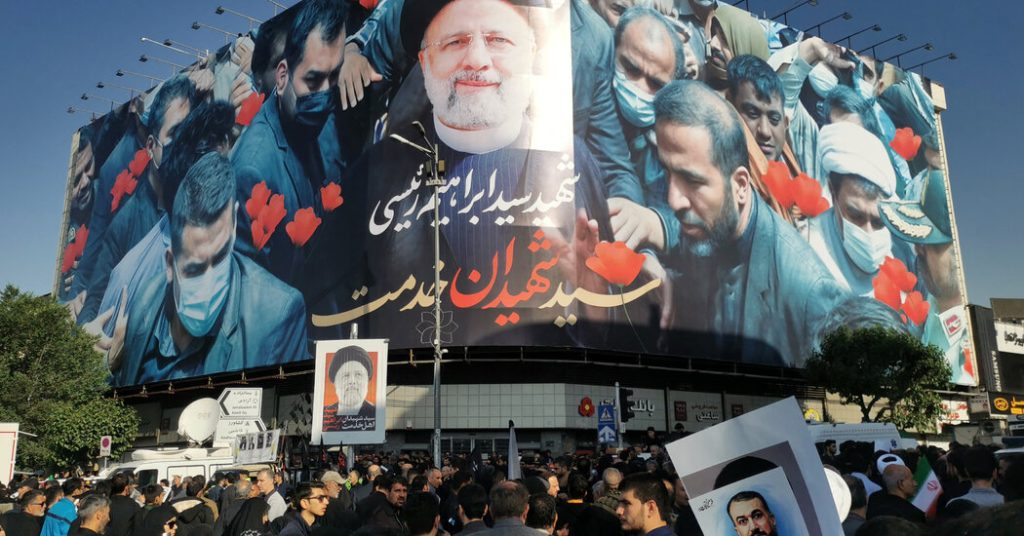Iran’s supreme leader, Ayatollah Ali Khamenei, led funeral prayers on Wednesday for President Ebrahim Raisi, who died in a helicopter crash along with Iran’s foreign minister and five others. Thousands of Iranians gathered in Tehran for the official day of mourning, with funeral observances starting in Tabriz before moving to Qom and Tehran. Tight security measures were put in place by Iran’s security forces, and public transportation was made free to enable people to attend the funeral at the University of Tehran.
Ayatollah Khamenei performed prayers for Mr. Raisi and the other crash victims at the University of Tehran, where the coffins were placed. His words were broadcast to the crowds outside, who bowed their heads in prayer. Mr. Raisi, who was considered a potential successor to Ayatollah Khamenei, had faced opposition from some Iranians due to his human rights record. The funeral procession was set to continue in Tehran, followed by a ceremony with high-ranking foreign dignitaries in attendance, although it was unclear how many leaders would be present.
Despite some ambivalence and even cheers from those who opposed the government, thousands of government supporters turned out for the funeral and memorial services across Iran. Mr. Raisi’s death comes as investigators look into the cause of the helicopter crash, which has been attributed to a technical failure. Initial reports indicated that weather conditions were normal when the helicopter took off, but it disappeared about 45 minutes into the flight after the pilot instructed the aircraft to increase altitude to avoid a cloud. The helicopter crash now led to speculation and questions as to how such a tragedy occurred.
As the mourning and investigations continue, foreign dignitaries are expected to attend the funeral in Tehran, although some countries, such as Russia, have announced they will not be sending delegations. Notable is the presence of Ismail Haniyeh, the leader of Hamas’s political wing, in Tehran, despite facing potential arrest warrants for war crimes and crimes against humanity. This suggests a continued alliance between Iran and its regional allies, like Hamas, despite recent tensions with Israel following direct attacks between the two countries.
The tragic deaths of Mr. Raisi and the other crash victims have gripped the nation, with state media covering the funeral proceedings extensively. The outpouring of grief and support for the deceased officials contrasts with the deep-seated opposition to the government that many Iranians hold. The helicopter crash has raised questions about safety protocols and maintenance standards in Iran, prompting calls for a thorough investigation into the incident. As the country mourns, the future political landscape remains uncertain, with the loss of Mr. Raisi potentially reshaping the leadership dynamics in Iran.


